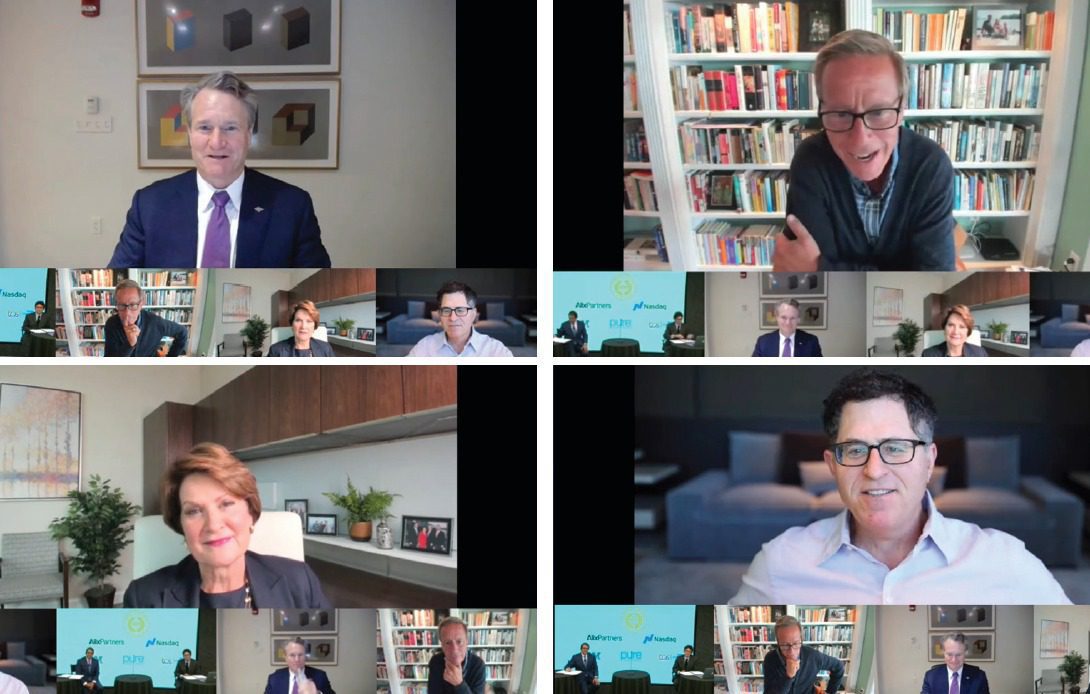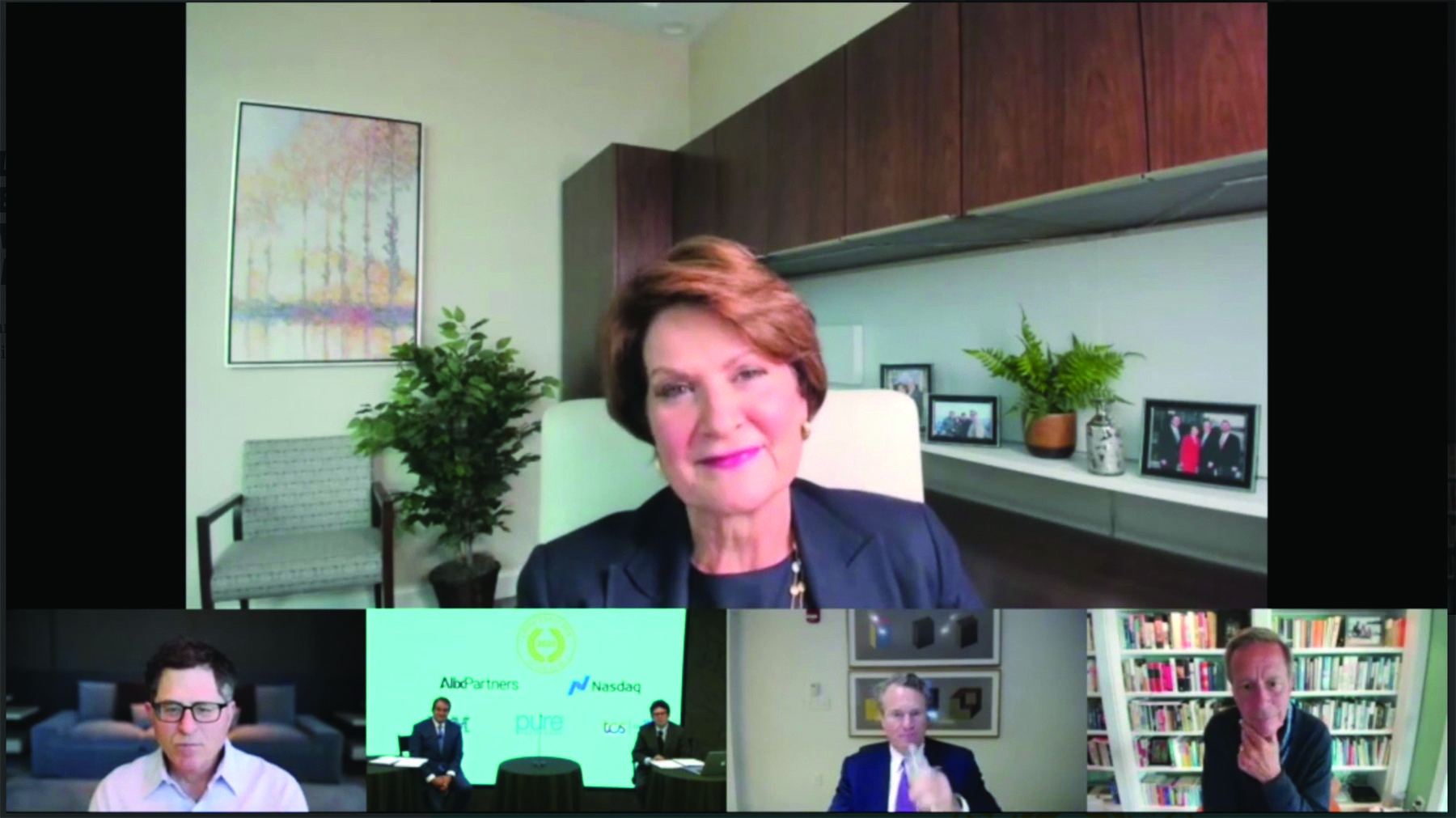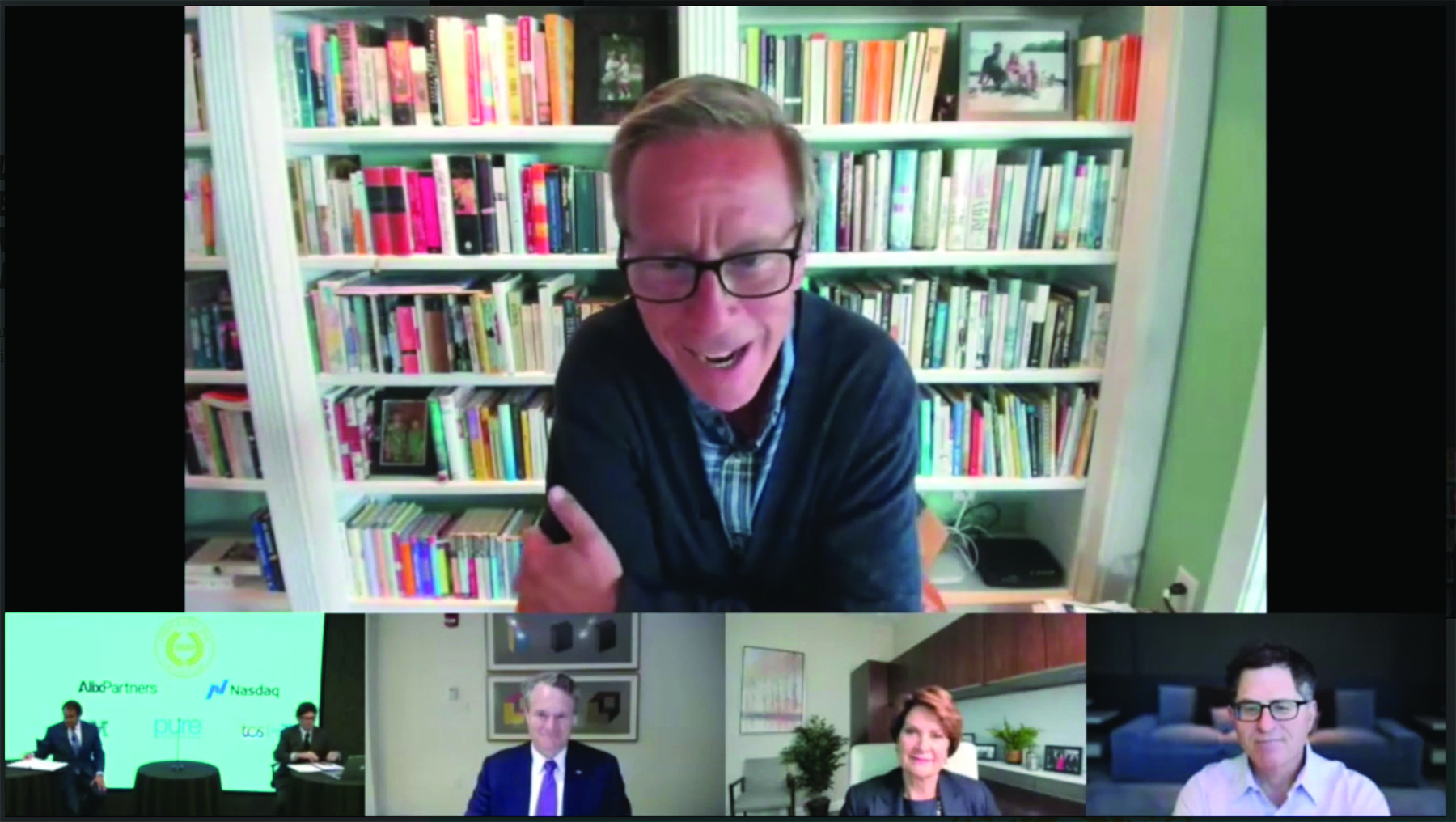CEO Of The Year Winners Say ‘The Why’ Is Critical


It’s perhaps not surprising that trust emerged as a running theme when AlixPartners’ Ted Bililies and Chief Executive editor Dan Bigman talked leadership with a brain trust of America’s most prominent CEOs at the tail end of a tumultuous year. Trust is what gives team members the confidence to persevere in the face of adversity. And it’s trust that powers forging forward with a plan of action when the road ahead is far from clear.
As Marillyn Hewson, former CEO of Lockheed Martin and 2018 CEO of the Year, put it, “As a CEO, you’ve got to outline for your team what the mission is, what the purpose is and where you’re taking the organization. And that starts with them trusting that you’ve got a value system that aligns with their values, that you understand the business and know where to take it. Then they’re willing to follow you through the ups and downs.”

Having led through crises like 9/11 and the financial downturn, these leaders know well the importance of shoring up trust during a crisis through candid communications. For Arne Sorenson, 2019 CEO of the Year and the CEO of Marriott, that meant speaking to employees in a poignant video outlining the decimating impact of the shutdown on his company. The idea initially raised questions internally out of concern that Sorenson’s hair loss due to undergoing cancer treatments could be discouraging for employees, he recounted. “I said, ‘We’ve got to be transparent with folks, and that means I need to deliver the bad news and do that hopefully in a way that is personal, that is honest and with some sense of hope,’” he said. “Faced with that kind of crisis, you turn to the only thing you can: the importance of communication and transparency.”

Heightened during times of stress, the need for clear communication around the ‘what,’ the ‘why’ and the ‘how’ is always critical. “This year, a sense of urgency was created for us, but usually we’re creating it,” pointed out Michael Dell, 2006 CEO of the Year and CEO of Dell Technologies, who urged leaders to bring employees along on the thought process when driving transformation. “In our company, we say, ‘Change or die.’ When you’re driving change, don’t make it a choice—and ‘why’ is super important. You’ve got to explain in detail why it really matters. Be transparent, tell them what you know, tell them what you don’t know, be visible, empathize and understand the challenges.”

Being a strong leader also demands a keen ear, attuned to murmurs in the ranks and able to coax out and parse information from all quarters. “You’ve got to be a sponge,” said Brian Moynihan, 2020 CEO of the Year and CEO of Bank of America. “Start with the experts who work for you directly but also listen to the people out there actually doing the work and, particularly in a crisis, help them get the information, process it and make sure they’re capable of doing what they do.”

Customers, employees, investors, peers in other industries and community stakeholders all represent rich resources strong leaders mine for clues on where the business is—or should be—headed and how to get it there. “The ability to listen is one of the most critical skills a CEO should have,” said Hewson. “As a new CEO, I took that on right off the bat, meeting with customers to ask how we were doing and what we could do better. And we actually found some areas we needed to take to a new level, and those put me on the path for a total cultural change around making sure we were responding to customer needs.”
Getting outside of one’s own sphere is also key, added Moynihan, who pointed out that the daily maelstrom of running a global business in a 24/7 world can cut everything else out. “You have to stay curious by reading stuff completely outside of your field so that you’re learning, your brain is not completely bogged down by stuff inside your company. You have to keep challenging yourself by getting outside and listening to smart people.”
More and more, voices are calling for leaders to weigh in on matters that extend far beyond corporate strategy. “Today, CEOs are being asked to do more than they’ve ever been asked to do before,” said Hewson. “We’re asked to step up and not only run our businesses, but be the voice and the example on some of the highest ideals that our nation has.”
Like many leaders, Dell views moving the needle on some of America’s most pressing societal concerns as a top concern of next-gen employees. “Employees are looking at their companies and wanting to understand: ‘how can we make a difference in the world and do something important?’” he said. “So,
like a lot of companies, we’re setting aspirational goals for ourselves around things like sustainability, inclusion and protecting data privacy. And I believe, deep in my heart, that it will be companies that drive progress on these things, not government, rules or regulations.”
No longer merely hoping that companies will lead the way in progress on areas like diversity and inclusion and social and racial justice, stakeholders are demanding it. “My advice to CEOs is to take the multi-stakeholder conversation we’re having very seriously,” said Sorenson. “There are a lot of voices out there that expect us to do everything we possibly can, not only to drive profits but for our employees, customers and for the communities in which we serve. Increasingly in big companies, our people look to us as their employers and say, ‘I feel like I belong to that organization and as a consequence, I expect that organization to be engaged in the things that I care about.”
Ultimately, it comes back to trust, which companies can win by delivering on social purpose. “[Stakeholders] are looking for CEOs and their organizations to drive the change that they’d like to see,” said Moynihan. “It comes down to that basic thing: deliver on both sides of the equation. If you can do both of those, then you deserve the trust of your teammates, your customers, your shareholders and the trust of society from which your profits will come.”
Chief Executive Group exists to improve the performance of U.S. CEOs, senior executives and public-company directors, helping you grow your companies, build your communities and strengthen society. Learn more at chiefexecutivegroup.com.
0

1:00 - 5:00 pm
Over 70% of Executives Surveyed Agree: Many Strategic Planning Efforts Lack Systematic Approach Tips for Enhancing Your Strategic Planning Process
Executives expressed frustration with their current strategic planning process. Issues include:
Steve Rutan and Denise Harrison have put together an afternoon workshop that will provide the tools you need to address these concerns. They have worked with hundreds of executives to develop a systematic approach that will enable your team to make better decisions during strategic planning. Steve and Denise will walk you through exercises for prioritizing your lists and steps that will reset and reinvigorate your process. This will be a hands-on workshop that will enable you to think about your business as you use the tools that are being presented. If you are ready for a Strategic Planning tune-up, select this workshop in your registration form. The additional fee of $695 will be added to your total.

2:00 - 5:00 pm
Female leaders face the same issues all leaders do, but they often face additional challenges too. In this peer session, we will facilitate a discussion of best practices and how to overcome common barriers to help women leaders be more effective within and outside their organizations.
Limited space available.

10:30 - 5:00 pm
General’s Retreat at Hermitage Golf Course
Sponsored by UBS
General’s Retreat, built in 1986 with architect Gary Roger Baird, has been voted the “Best Golf Course in Nashville” and is a “must play” when visiting the Nashville, Tennessee area. With the beautiful setting along the Cumberland River, golfers of all capabilities will thoroughly enjoy the golf, scenery and hospitality.
The golf outing fee includes transportation to and from the hotel, greens/cart fees, use of practice facilities, and boxed lunch. The bus will leave the hotel at 10:30 am for a noon shotgun start and return to the hotel after the cocktail reception following the completion of the round.